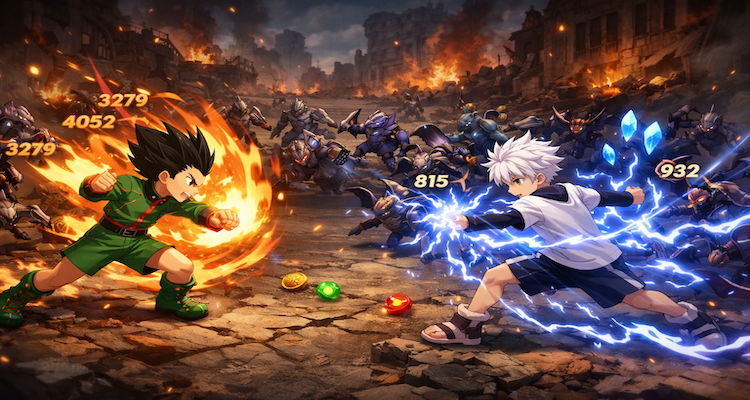Next-Gen Intelligence: Latest AI Updates You Can’t Miss

Stay ahead with the most important breakthroughs in AI, from GPT-5 and Google’s Gemini to ethical debates and real-world applications transforming industries.
Next-Gen Intelligence: Latest AI Updates You Can’t Miss
Introduction:
Artificial Intelligence (AI) isn’t just a buzzword anymore—it’s a seismic force reshaping how we live, work, and interact. From groundbreaking innovations in generative models to real-world deployments in medicine, education, and defense, AI is progressing at breakneck speed. But what exactly has changed recently? This deep dive into the latest AI developments will catch you up on everything you need to know.
Context & Background:
The past decade has witnessed AI evolve from narrow tools like voice assistants to general-purpose intelligence systems that rival human capabilities in text, image, and even reasoning. The release of OpenAI’s GPT-4 in 2023 marked a turning point, with competitors like Google DeepMind, Anthropic, Meta, and Mistral racing to build more powerful models.
These advances have also brought rising concerns about AI safety, misinformation, automation, and ethical misuse—making it more crucial than ever to stay informed about what’s next.
Main Developments: What’s New in AI?
1. GPT-5 Is on the Horizon
OpenAI’s next frontier, GPT-5, is reportedly in final testing phases and expected to surpass GPT-4 in reasoning, real-time web access, memory, and safety. It may come with full multimodal capabilities—meaning it can fluently process text, images, audio, and video in a single query.
This is set to revolutionize everything from customer service to content creation, enabling AI to act more like a cognitive assistant than a chatbot.
2. Google’s Gemini Gets Smarter
Gemini 1.5, Google’s latest large language model (LLM), is optimized for reasoning, longer context windows (over 1 million tokens), and safer outputs. Integrated deeply across Google products like Gmail, Docs, and Search, Gemini represents a leap toward fully embedded AI in daily workflows.
3. Anthropic’s Claude 3 and Open Source Momentum
Claude 3, developed by former OpenAI researchers, is gaining popularity for its accuracy, transparency, and open collaboration model. Meanwhile, Meta’s LLaMA 3 and Mistral’s Mixtral models are advancing open-source AI—making powerful language tools accessible to smaller businesses and researchers.
4. AI in the Real World: Medicine, Defense, and Beyond
In healthcare, AI tools like PathAI are now helping diagnose diseases with superhuman accuracy. The U.S. Department of Defense is integrating AI for battlefield simulations and real-time threat analysis, while AI tutors are revolutionizing global education access.
Expert Insight & Public Reaction
Dr. Fei-Fei Li, co-director of Stanford’s Human-Centered AI Institute, commented recently:
“We’re entering a new phase of AI that is not just about performance, but responsibility. The next frontier must focus on trust, fairness, and safety.”
Public sentiment remains mixed. A 2025 Pew Research Center survey found that 62% of Americans believe AI will positively impact healthcare and education, but 71% express concern over job automation and misinformation risks.
Impact & Implications: Who’s Affected and What’s Next?
1. Workers and Creators
From writers to data analysts, many professionals are adjusting workflows to include AI—either as a threat or a tool. Prompt engineering, AI oversight, and hybrid roles are fast becoming the new normal.
2. Business and Economy
McKinsey estimates that generative AI could contribute $4.4 trillion annually to the global economy. Startups and Fortune 500s alike are integrating AI to cut costs, boost productivity, and personalize services.
3. Society and Ethics
Governments worldwide are scrambling to regulate AI, with the EU’s AI Act becoming a template for ethical compliance. In the U.S., the White House has introduced AI safety standards focusing on transparency, fairness, and non-bias.
Conclusion: The Future Is (Almost) Here
AI is no longer science fiction—it’s an everyday companion, competitor, and co-pilot. As models grow more advanced and integrated into society, staying informed isn’t optional—it’s essential. The next generation of intelligence is unfolding now, and its impact will touch every corner of life, from our personal devices to global policymaking.
Stay alert. Stay curious. The future is written in code.
Disclaimer:
This article is for informational purposes only. It reflects the latest updates in artificial intelligence as of May 2025 and is not a substitute for professional or technical advice.










